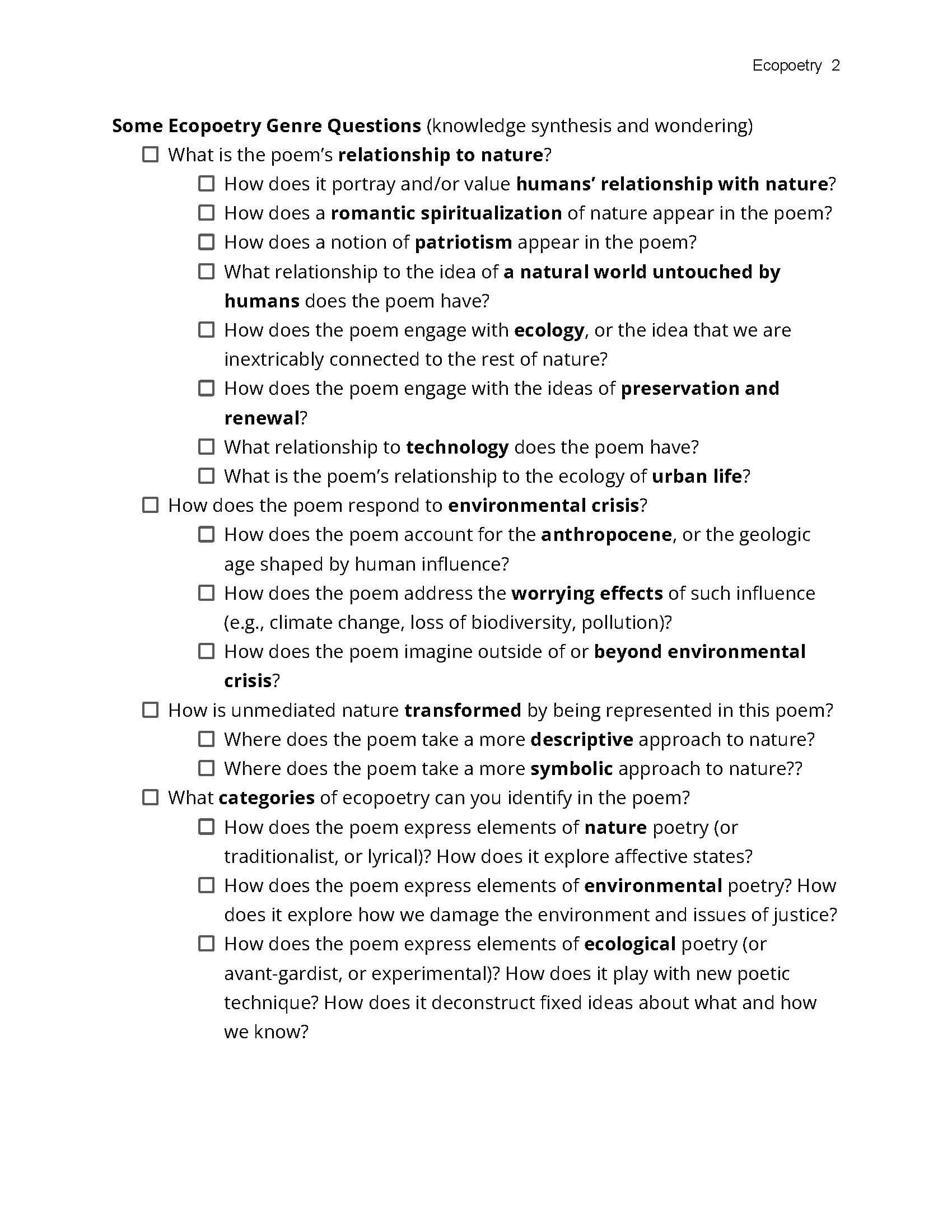Who are some of the most influential ecopoets in contemporary literature?
Ecopoetry: Nature, Environment, and the Poetic Imagination
In an age where environmental concerns are at the forefront of global discussions, ecopoetry stands as a profound medium that melds the artistic expression of poetry with the urgent issues facing our planet. Combining the evocative power of words with the profound themes of nature and the environment, ecopoetry offers a unique perspective that captures the imagination and inspires action.
What is Ecopoetry?
Ecopoetry is a creative literary genre that intertwines poetry and environmental consciousness. It seeks to express the beauty of nature, the complexity of ecological systems, and the pressing environmental issues threatening our planet. Unlike traditional nature poetry, which often focuses on the tranquility and aesthetic value of nature, ecopoetry frequently explores the human impact on the environment and calls for ecological responsibility.
Key Elements of Ecopoetry
- Nature and Environment: The primary focus of ecopoetry is on nature and the environment. It often highlights the intrinsic connection between humans and the natural world.
- Ecological Awareness: Ecopoetry promotes awareness about environmental issues, such as climate change, deforestation, and pollution.
- Activism: Many ecopoems advocate for environmental protection and encourage readers to take action to preserve the planet.
- Poetic Imagination: Ecopoetry uses rich imagery and metaphor to evoke emotional responses and highlight the urgency of environmental conservation.
Benefits of Ecopoetry
Raising Environmental Awareness
Ecopoetry plays a vital role in raising awareness about environmental issues. Through vivid imagery and poignant language, it captures the reader’s attention and encourages contemplation about the state of the environment.
Emotional Connection
The evocative nature of poetry allows for a deep emotional connection. Ecopoetry can evoke strong feelings of sorrow, awe, hope, and determination, which can be powerful motivators for environmental activism.
Inspiring Action
By highlighting environmental crises and potential solutions, ecopoetry often inspires readers to become more environmentally conscious and take tangible actions to protect the planet.
| Impact | Description |
|---|---|
| Awareness | Educates readers about environmental issues. |
| Emotional Response | Evokes strong feelings that promote environmental concern. |
| Motivation | Inspires action and advocacy for the environment. |
Practical Tips for Writing Ecopoetry
Engage with Nature
Spend time outdoors and immerse yourself in the natural environment. Take note of the sights, sounds, and smells around you. First-hand experiences provide authenticity and depth to your poetry.
Research Environmental Issues
Stay informed about current environmental issues. Reading scientific articles, news reports, and environmental literature can provide valuable insights that can enrich your poetry.
Use Vivid Imagery and Metaphor
Utilize rich imagery and metaphor to make your themes more compelling. A well-crafted metaphor can make abstract environmental issues more relatable and understandable.
Focus on Both Beauty and Crisis
Balance your depictions of nature’s beauty with the pressing environmental crises. This duality can capture the reader’s heart and mind, emphasizing what is at stake.
Call to Action
Consider incorporating a call to action within your poem. Whether subtle or direct, this can inspire readers to think more deeply about their environmental impact and motivate them to act.
Case Studies in Ecopoetry
Gary Snyder
Gary Snyder’s poetry often draws inspiration from his deep connection with nature and his understanding of ecological systems. His work frequently addresses themes of environmental conservation and sustainability.
Mary Oliver
Known for her vivid depictions of the natural world, Mary Oliver’s poetry often reflects on nature’s beauty and the need to protect it. Her work has inspired many to appreciate and preserve the environment.
Wendell Berry
Wendell Berry’s poetry and essays advocate for sustainable agriculture and environmental stewardship. His work emphasizes the interconnectedness of human and ecological health.
Conclusion
Ecopoetry serves as a powerful bridge between the artistic world and environmental advocacy. By weaving together the beauty of nature, the urgency of environmental issues, and the emotional resonance of poetry, ecopoetry provides a unique and compelling platform to inspire awareness and action. As we continue to grapple with the challenges of climate change and environmental degradation, the role of ecopoetry in fostering a deeper ecological consciousness and a more profound connection to the natural world has never been more crucial.
Embrace the world of ecopoetry, engage your poetic imagination, and let your words inspire change.
